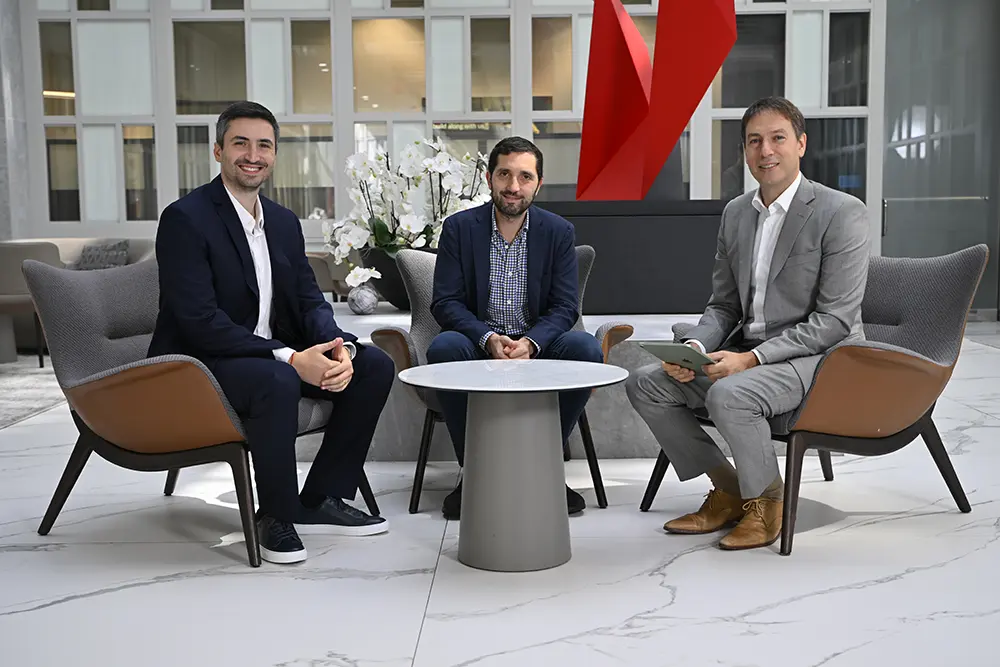|
Getting your Trinity Audio player ready...
|
In the financial world, where metrics often dominate conversations and rankings seem to summarize entire journeys, it is both refreshing—and necessary—to pause and take a closer look at the stories that transcend numbers. RBI is one of them.
A standout in the private lending ecosystem, RBI has established itself as a leading force in alternative financing. Their annual figures, indeed, show a steady growth curve. But to define their success solely in terms of economic performance would be, at best, incomplete. As with all truly transformative stories, the real key lies elsewhere.
To understand it, you need to step inside the company’s culture. Speak with its people. Pay close attention to how they connect with their clients. That’s what we did for this edition, interviewing two of their loan officers, who, far from the distant image of the “financial executive,” revealed themselves as attentive, committed, and genuinely compassionate. This is no coincidence—it is part of their philosophy.
At RBI, success is not measured by profitability alone. It extends to a more human, almost vocational sense of purpose.
How many people did we help this year? How many projects were brought to life because of our support?
These are the questions that echo through the company’s halls and guide its daily work. It’s not about idealism, but about a professional ethic that understands money for what it truly is: a means, a vehicle to help others reach their destination.
That’s why, when a deal falls through, it’s not the lost capital that hurts the most, but the lost opportunity—the dream that couldn’t take shape. Perhaps this is where RBI most clearly sets itself apart: at RBI, the human impact of every transaction is not an afterthought. It is at the heart of what they do.
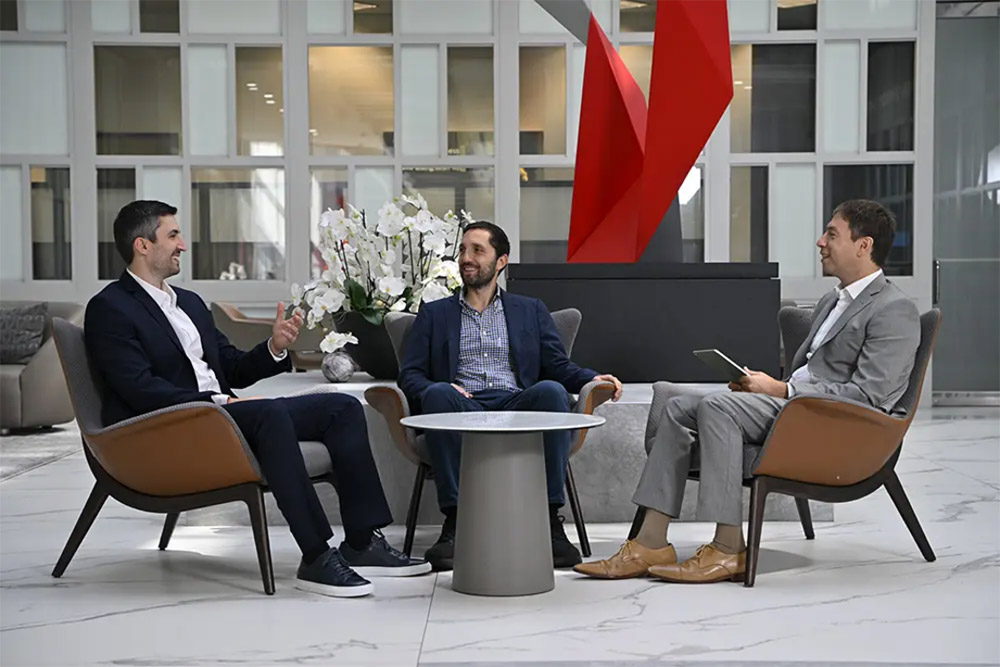
This deep sense of purpose, of course, exists alongside a strong technical backbone, rigorous processes, and a sharp analytical approach. Supporting others in their financial decisions requires not only empathy, but also precision, expertise, and responsibility.
RBI’s true achievement is in this rare balance: blending reason with purpose, hard data with a vocation to serve.
It’s worth noting that this organizational culture—remarkable for its consistency and depth—is no accident. It is the direct result of the ethical and professional values upheld by RBI’s leadership. Both CEO Ernesto Rostoker and Chief Lending Officer Andrés Saias, whom we had the pleasure of interviewing, embody this vision with clarity: to lead by example—with humanity, with strategic purpose, and with an unwavering belief in the social value of private credit.
What lies behind RBI’s success, then, is not a magic formula or a secret strategy. It is, instead, a deep consistency between what they do and why they do it. A broader understanding of the role a company can play within the social and economic fabric. A commitment to something as intangible—and as vital—as the dreams of others.
At a time when cynicism often seems to prevail, finding an organization that honors the human side of its work is, without a doubt, good news.
And perhaps that is where true success lies: never forgetting why we do what we do.
And now, I leave you with Ernesto and Andres.
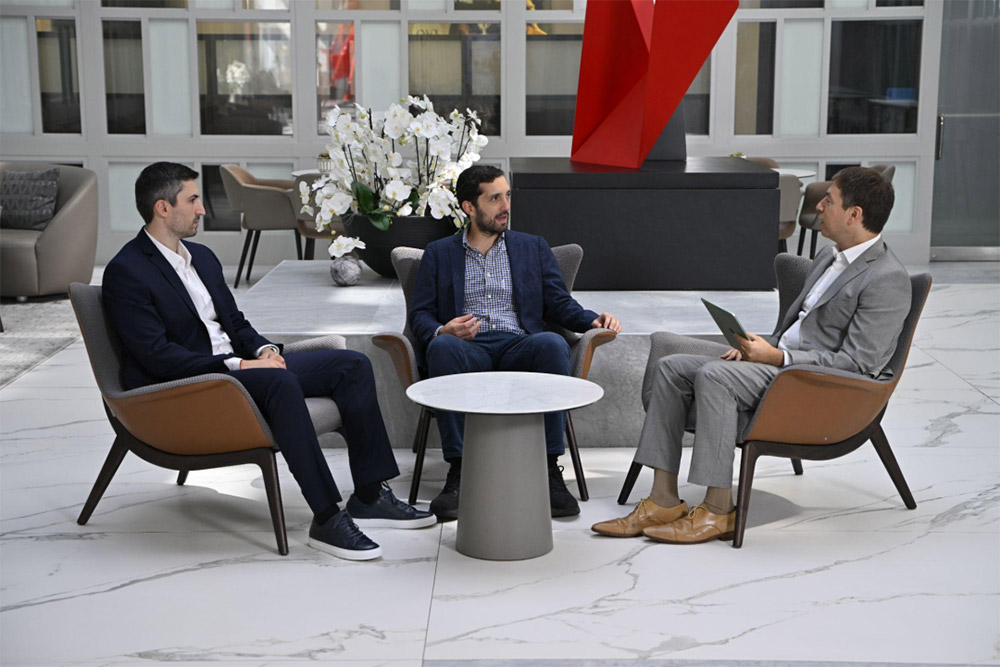
Uriel: Thank you Ernesto and Andres, it is a pleasure to have you in this inaugural edition. To begin, RBI has earned a prominent position in the private lending market. Could you walk us through how it all started?
Ernesto: Thank you, Uriel. We’re honored to be part of the magazine’s very first edition. It all started around 2014 and 2015, when we began offering loans to foreign nationals to help them buy cars. These were people with no access to credit in the U.S., and we helped them establish their first credit history. At the time, this was a completely innovative idea—there was no similar product in the market.
Soon after, we identified another growing need in the real estate sector. From 2012 to 2015, foreign purchases of condos in Miami multiplied fivefold. Many investors were entering the market, but financing models were informal—individual investors would group together and lend money on a case-by-case basis. There was no structured business model.
While banks offered lower rates, they came with many requirements and prepayment penalties. We offered a different alternative: higher rates—say, 8.5% instead of 5%—but with fast approval times (10 to 15 days) and no prepayment penalties. Typically, we lent up to 50% of the property value, connecting borrowers on one side and investors on the other.
By 2018–2019, the business had evolved. We decided to split it into two units: one focused on loan origination and selling those loans in the secondary market, and the other a long-term investment fund. That’s how RBI Private Lending was officially born—fully dedicated to professional loan origination.
Andrés: I’d also add that at the beginning, nearly 100% of our portfolio consisted of bridge loans. But by 2018/2019, we began shifting toward more experienced fix & flip and construction loan borrowers.
Uriel: And, how is your current loan portfolio distributed?
Andrés: Today, 60% of our portfolio is construction loans, 30% is fix & flip, and the remaining 10% is bridge loans. That shift came as we began working more directly with repeat investors. Internally, we built out the structure to manage these types of loans, including site inspections and project monitoring.
Ernesto: With our in-house management team and integrated technology, we can now provide immediate responses to new construction loan requests. That gives us a competitive edge, and we believe we’re well on our way to becoming national leaders in this space.
We’re also starting to work with DSCR loans—30-year term financing for stabilized properties, where investors choose to refinance.
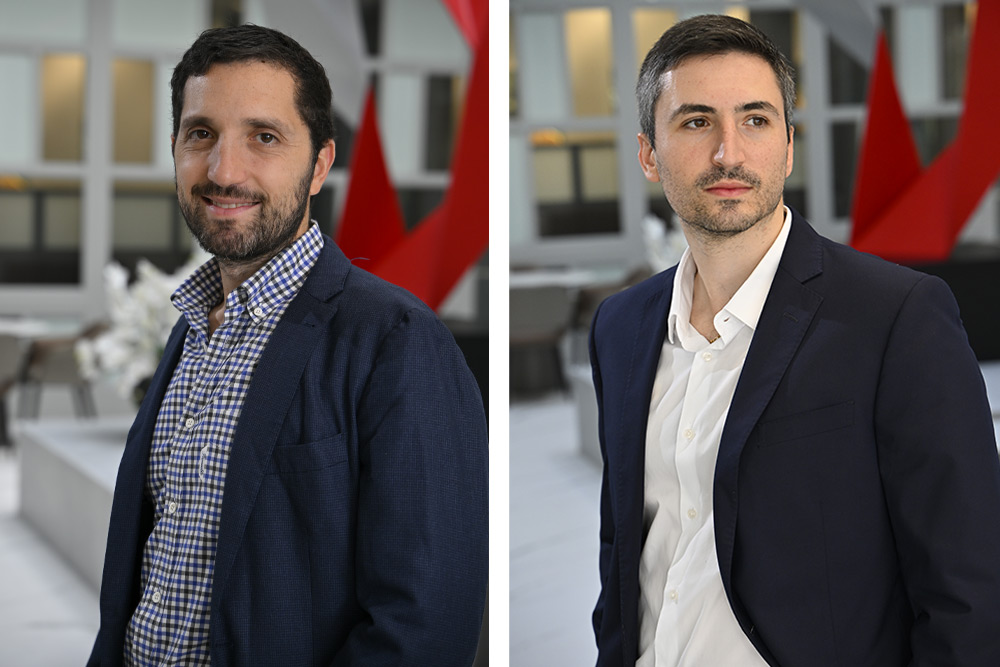
Uriel: And tell me Andres, some companies mainly focus on brokers, not investors. What’s your approach?
Andrés: We work with both. Originally, we focused on brokers, but over time—and with technology—many experienced clients began reaching out directly, without the need for intermediaries.
That said, we still maintain strong relationships with brokers. We offer them highly competitive programs and consider them strategic partners.
Uriel: But doesn’t working directly with investors create more work?
Andrés: Yes, it does. But it also brings higher profitability, greater efficiency, and it helps avoid potential conflicts of interest that may come with intermediaries. That said, our experience with brokers has been consistently positive. We truly value those relationships and continue to see them as essential partners in our growth.
Uriel: I’ve noticed that many major lenders tend to steer business through brokers, while RBI seems more investor-focused.
Ernesto: That shift happened naturally. We find that investors who deal with us directly tend to be more sophisticated, while brokers often work with clients who lack that experience. Both profiles are valuable, but our model increasingly attracts seasoned investors.
Uriel: Many Loan Officers reading this are watching your growth and wondering What it’s like to work with RBI. What would you tell them?
Ernesto: I’d say we truly invest in long-term relationships. We’ve built a culture that encourages people to grow, evolve, and reach their full potential.
Andrés: Exactly. Any Loan Officer who joins RBI knows that if they hit their goals—and since we’re constantly expanding—they’ll likely lead a team in a very short time. We provide all the tools needed to succeed. We aim for partnerships that benefit both sides.
Uriel: What kind of compensation structure do you typically offer Loan Officers?
Ernesto: It’s never one-size-fits-all. Every offer is custom-tailored, designed to be fair and beneficial for both sides.
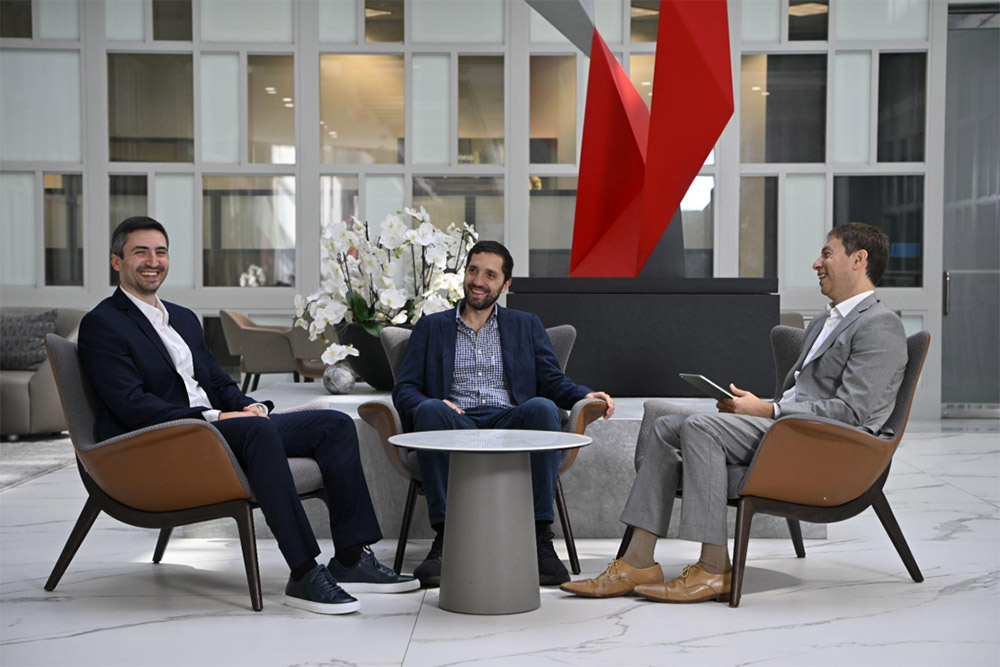
Uriel: Now, according to Forecasa, your transaction volume in Florida grew by 63% YOY. To what do you attribute such rapid growth?
Andrés: Market knowledge has been key. We have strong leaders for each sector—not only to close deals, but to build lasting relationships. As we expand into new markets, our structure provides every new leader with the tools they need to grow. Each market behaves differently, so having local leadership that understands the region is critical. That’s why we always prioritize regional expertise for sustainable expansion.
Uriel: Looking at the current economic climate—Trump is pushing for rate cuts. What’s your take on the market right now?
Andrés: Experienced investors are resilient. They adapt and reinvent themselves. If rates do go down, it could lead to more activity. But we’ve already seen increased momentum in Q2.
Ernesto: Construction costs have gone up, which has given an edge to more sophisticated investors who know how to optimize and stay profitable. Across most of the country, there’s a housing inventory shortage. Our clients remain active and are becoming increasingly efficient. Less experienced investors may be slowing down, but seasoned ones are still growing. We’re seeing sales cycles shift again—from 30-day closings post-pandemic to 4-6 month periods, similar to pre-pandemic times.
Uriel: At industry conferences, I often hear concerns from lenders who say deals used to come easily, but now they have to chase them—and many Loan Officers aren’t trained for that. What’s the reality at RBI?
Ernesto: We focus on long-term relationships with experienced clients. Most of them stay with us, and that gives us a very high loyalty rate. Our Loan Officers still prospect, of course, but most of their time is spent deepening existing relationships and working with referrals.
Andrés: It also depends on the lender. Those focused on construction loans are less affected, thanks to the ongoing housing shortage.
Uriel: What LTV (Loan-to-Value) do you typically offer?
Andrés: An experienced investor can qualify for up to 87.5% of the total cost of land plus hard construction costs (materials). We usually don’t finance soft costs like architectural fees, as they tend to be more subjective.
Uriel: To wrap up, what do you believe truly distinguishes RBI in such a competitive market?
Ernesto: We offer competitive pricing, but that’s not the main reason. We have a solid in-house construction team and offer outstanding support for our Loan Officers—fast solutions, internal resources, and the ability to resolve most issues under one roof. But ultimately, what truly sets us apart is our culture. We value personal relationships—internally and externally. Everyone who interacts with RBI feels like part of a family. That’s what defines us. That’s our identity.
Uriel: Thank you, Ernesto and Andrés. We truly appreciate your insights and your time.
Ernesto: Thank you, Uriel. It was a real pleasure to be part of this first edition. We truly appreciate the opportunity to share what RBI is all about.
Andrés: Yes, thank you! We’re excited about what’s ahead and happy to be part of this new platform for the lending community.
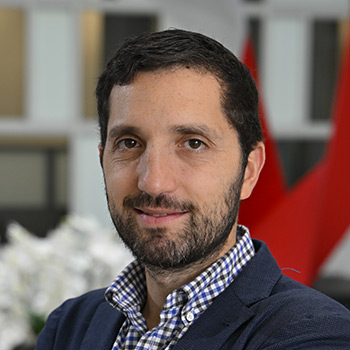
Ernesto Rotoker
CEO at RBI Private Lending
Ernesto is the Chief Executive Officer of RBI Private Lending, where his strategic vision and leadership have driven the company to become the second-largest private lender in Florida. With a solid background in finance and real estate investment, Ernesto has positioned RBI as a trusted partner known for speed, flexibility, and tailored lending solutions. He is a recognized industry speaker, sharing his expertise on market trends, capital strategies, and sustainable lending at numerous conferences and panels.

Andrés Saias
CLE at RBI Private Lending
Andrés serves as Chief Lending Officer of RBI Private Lending, overseeing loan origination and portfolio performance while ensuring the firm’s lending products meet the evolving needs of real estate investors and developers. His deep expertise in real estate finance and risk management has been instrumental in RBI’s rapid growth and top-tier market position. A frequent conference speaker, Andrés provides practical insights on borrower relationships, risk evaluation, and innovative lending structures.


